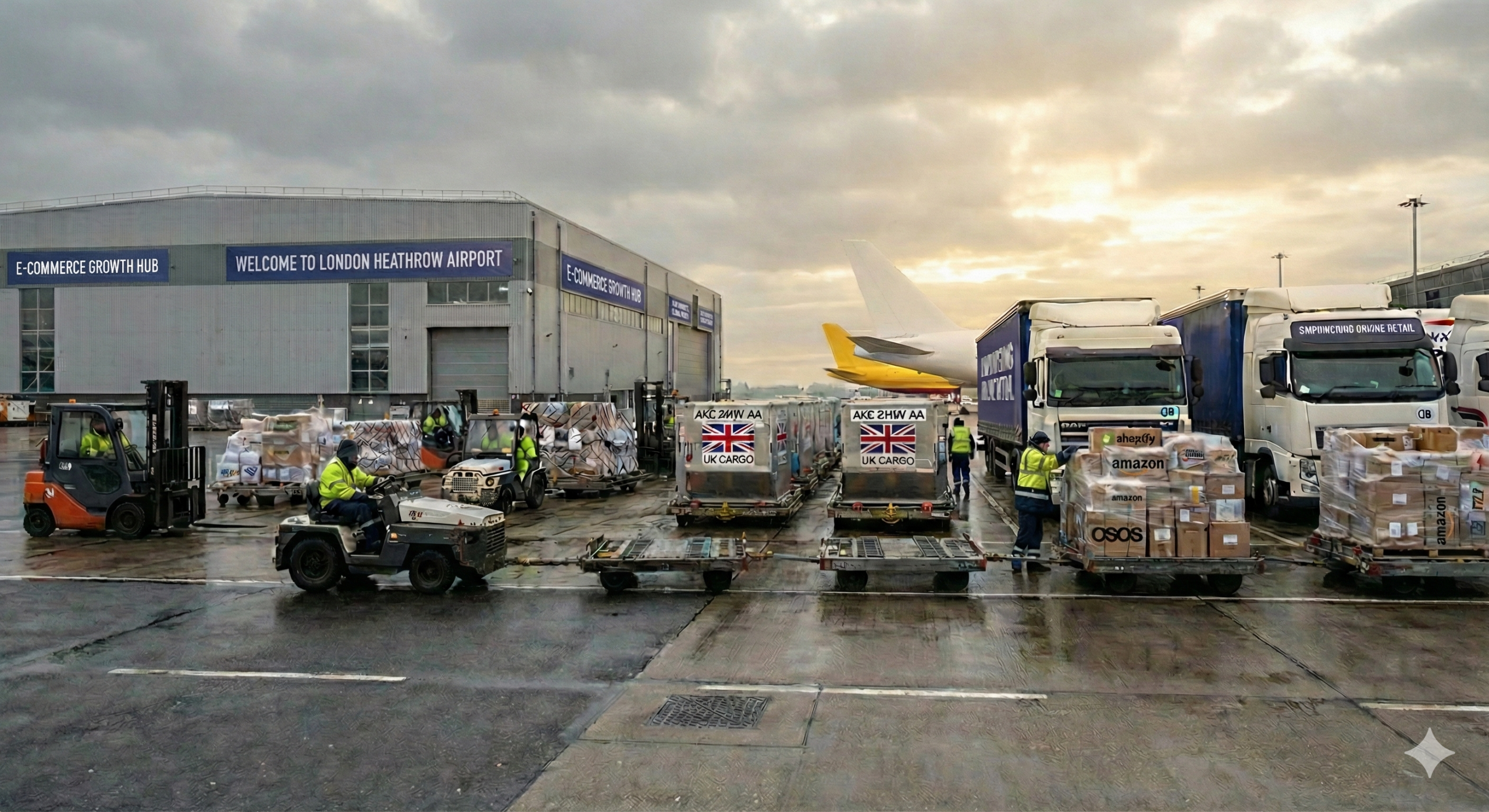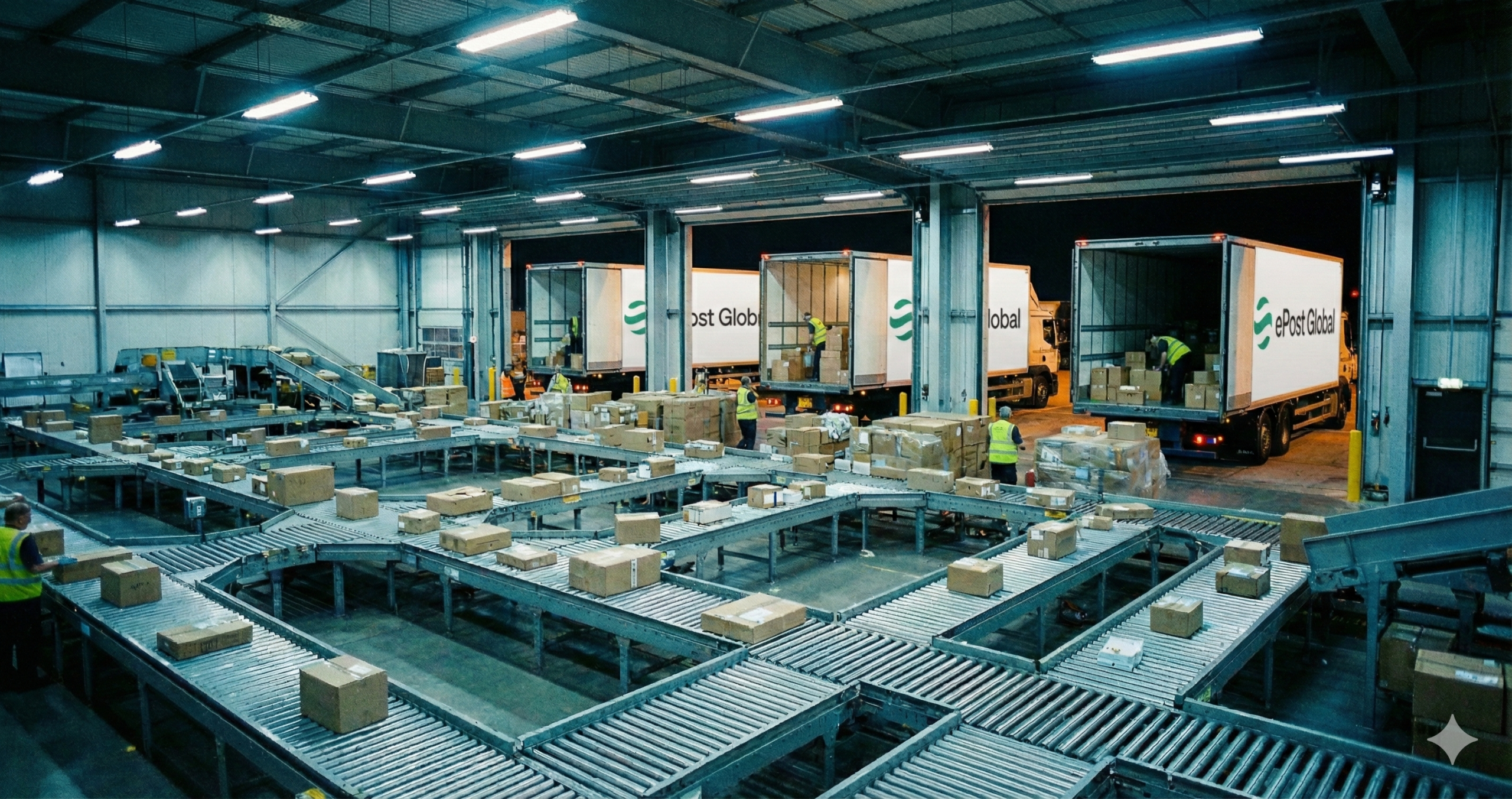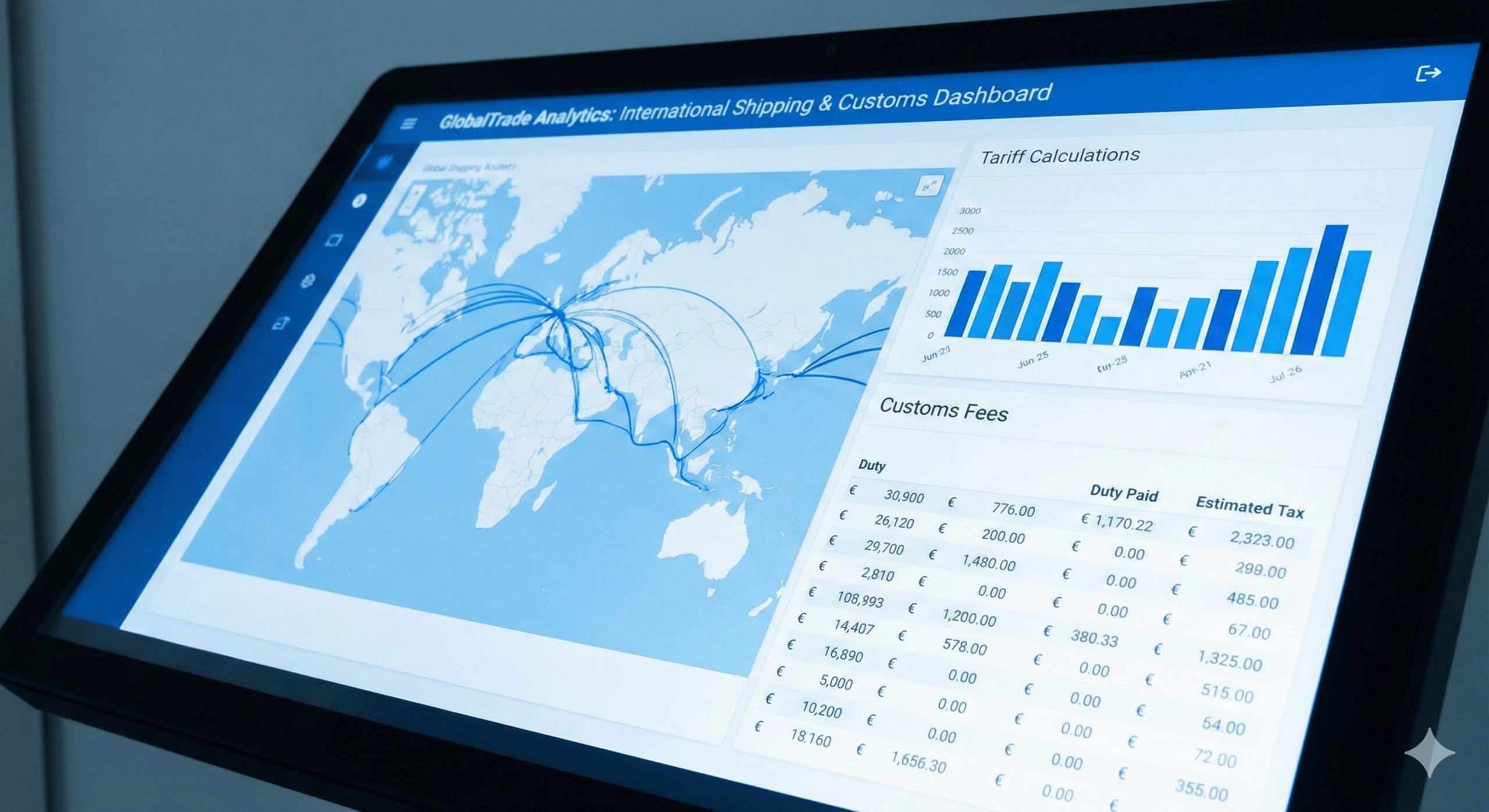Tapping into international markets offers substantial benefits for eCommerce businesses, such as revenue growth, market expansion, and increased brand awareness. As one of the largest and most advanced eCommerce markets in Europe, the UK presents a promising opportunity for U.S. retailers. However, it’s essential to understand consumer preferences, UK-specific regulations, and the overall market conditions before shipping to the UK from the USA.
With the right international shipping partner, businesses can fully capitalize on what the UK market has to offer. At ePost Global, we help clients navigate the complexities of cross-border shipping with country-specific expertise, reliable delivery, and seamless logistics support. Below, we break down key benefits, important considerations, and the steps involved in successfully shipping to the UK.
Why the UK Is Still a Top International Market for U.S. Retailers
According to Anchanto’s UK eCommerce report for 2025, the United Kingdom continues to be one of the most attractive eCommerce markets globally, with digital sales making up more than 30% of total retail sales in the country. Yet although the market is mature, it also continues to steadily grow, making it a strong contender for cross-border expansion. A key advantage for international sellers is the UK’s robust infrastructure. The country has a highly developed logistics and transportation network, which enables fast, cost-effective delivery across regions. Businesses benefit from reliable distribution systems, dense urban centers, and advanced technology platforms that support scalable operations.

Why the UK Is Still a Top International Market for U.S. Retailers
According to Anchanto’s UK eCommerce report for 2025, the United Kingdom continues to be one of the most attractive eCommerce markets globally, with digital sales making up more than 30% of total retail sales in the country. Yet although the market is mature, it also continues to steadily grow, making it a strong contender for cross-border expansion.
A key advantage for international sellers is the UK’s robust infrastructure. The country has a highly developed logistics and transportation network, which enables fast, cost-effective delivery across regions. Businesses benefit from reliable distribution systems, dense urban centers, and advanced technology platforms that support scalable operations.
What UK Consumers Want And What They Expect from Shipping
Top-performing product categories in the UK include fashion (particularly clothing and shoes), cosmetics, consumer electronics, and pharmaceuticals. Subscription eCommerce, which depends on consistent on-time delivery, is also booming, especially in the food, personal care, and pet products categories. On average, UK households spend €742.70 per year on subscriptions, with users remaining subscribed for an average of nine months.
Shipping performance plays a crucial role in consumer satisfaction. More than 60% of UK shoppers expect next-day delivery, and 45% prefer to pick up online purchases from physical stores. Additionally, more than half consider same-day delivery important, highlighting just how critical speed, flexibility, and convenience are when it comes to winning customers.

Navigating Shipping Regulations When Shipping to the UK from the USA
While expanding internationally can be exciting, the shipping process requires understanding UK regulations, import duties, customs clearance, and commodity-specific stipulations as part of the broader customs process. Below, we’ve outlined the information necessary to navigate the process easily.
Customs Regulations
UK customs regulations are established by His Majesty’s Revenue & Customs (HMRC), the government department responsible for collecting taxes and customs duties on goods imported into the country. Among other things, the HMRC sets regulations to ensure the items shipped into the UK comply with trade and safety laws.
Certain industrial goods require import licenses issued by the Department for International Trade’s Import Licensing Branch (ILB). If a shipper attempts to import a banned item or an item requiring a specific license, it will receive a restriction notice. Standard import products prohibited in the UK (as outlined on the customs form and declared through U.S. customs for the destination country) include weapons, self-defense sprays, rough diamonds, and personal meat or dairy products.
It’s essential to stay updated with UK customs by regularly viewing the official HMRC website.
UK Import Duties and Taxes
Import duties are taxes the UK government imposes on goods entering the country. In addition, the UK charges a standard value-added tax (VAT) of 20%. However, some categories are zero-rated, meaning no VAT is applied—for example, most food items and children’s clothing. Others may qualify for a reduced rate of 5%, such as children’s car seats, booster seats, and certain mobility aids.
VAT is applied at each stage of the supply chain and ultimately passed on to the end consumer. That said, how VAT and duties are handled depends on your shipping terms:
If you ship DDP (Delivered Duty Paid): You, the exporter, are responsible for calculating and paying VAT and any applicable duties on behalf of your customer.
If you ship DDU (Delivered Duty Unpaid): Your UK customer will be responsible for paying VAT, duties, and any applicable collection fees before receiving their package.
It’s crucial to clarify this at checkout, as unexpected charges can lead to cart abandonment or returns.
Additionally, exporters must provide accurate product valuations and classification codes. If the declared value or commodity code is incorrect, UK customs authorities may reassess the shipment, which can result in added fees, shipment delays, or even returns. Working with a knowledgeable international shipping services provider can ensure customs documentation, including the right shipping method and product classification, is correct and prevent costly disruptions.
Required Documentation
Proper clearance from UK customs authorities requires several key documents: a customs declaration, a commercial invoice, and a certificate of origin.
The customs declaration outlines the product(s) you’re shipping and includes a commodity code for each item. These codes, found in UK Trade Tariff: Volume 1, serve as reference numbers that classify goods for import. Each item type must be correctly coded, especially if a shipment includes multiple product categories. For example, if you’re shipping a package containing a jar of jam and a cotton T-shirt, each would require its own distinct commodity code based on its classification (food vs. apparel). Incorrect coding can lead to delays, fines, or even product seizure.
The commercial invoice must provide an itemized list of the goods, including product names, descriptions, quantities, unit prices, and currency.
The certificate of origin confirms where the goods were produced. While “place of origin” and “manufactured location” often align, they can differ in cases where raw materials come from one country and final assembly occurs in another. The UK may require origin details for trade agreement purposes, so accuracy matters.
Packaging and Labeling Considerations
Products shipped to the UK from the USA may require a UK Conformity Assessed (UKCA) marking. This is specific to goods bound for England, Wales, or Scotland; the Northern Ireland market requires additional regulatory markings, with requirements depending on the product. You can view guidelines and FAQ regarding Northern Ireland and Great Britain (England, Wales, and Scotland) to ensure labeling compliance before shipping your item.
Only the product’s manufacturer or an authorized representative can place the UKCA marking on the product, and it must be visible and legible. If the marking cannot be put on the product, it must be attached to the packaging or accompanying documents.

Building Customer Trust and Satisfaction
Even as you complete each step of regulatory compliance for shipping internationally to the UK, you need to keep customer satisfaction top of mind. Providing customers with a positive experience is paramount to achieving success. Quality customer care starts with transparent communication regarding delivery times, cost of shipping, delivery speed, and potential import tax, along with any potential customs charges. A simple way to connect with your audience is to inform consumers of all shipping costs from the start of the buyer’s journey.
Once you’ve established your shipping rates and a transparent way to notify your customers of them, be sure to offer various shipping options. Consumers often opt for the cheapest way available through your chosen international service or shipping solution, but some might pay a premium to receive a product they love or need sooner rather than later.
And no matter how well considered and implemented your shipping process, mistakes are inevitable, especially when dealing with customs or coordinating with the post office for international shipments. Customers are much more likely to be understanding and accommodating when they are swiftly apprised of any issues and receive thoughtful, polite customer service. Since 93% of customers are likely to shop again with a company following a positive customer service interaction that provides peace of mind and sets clear expectations for transit times, setting the bar high for your customer service team at the start could be what sets your business apart from another.
ePost Global As Your UK Shipping Partner
At ePost Global, we specialize in making international economy and express shipping services simple, reliable, and scalable for eCommerce businesses.
With decades of experience and a global logistics network, we help U.S. brands expand into markets such as the UK with confidence.
- Expertise you can trust. Our team brings deep knowledge of international regulations, customs requirements, and country-specific logistics to help you avoid delays and deliver with confidence.
- Ongoing customer support. Whether you’re shipping small parcels or managing high-volume subscription boxes, our support team is here to ensure a smooth experience at every stage.
- Transparent tracking. We offer enhanced tracking and real-time visibility, so your customers always know where their package is, reducing uncertainty and improving satisfaction.
- Flexible shipping options. Thanks to long-standing partnerships with global and regional carriers, we offer a wide range of delivery solutions tailored to your timeline, budget, and business model.
International shipping may seem complex. With the right partner by your side, however, expanding into the UK is more achievable than you might think. As one of the world’s most accessible and lucrative markets, the UK presents a major opportunity for growth.
If you're ready to reach UK customers with fewer headaches and more confidence, partner with ePost Global. Contact us today to get started.




